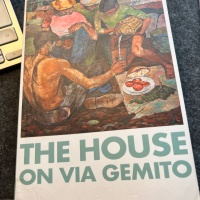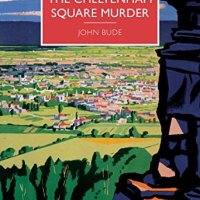I love books about books, I love books about bookshops and I love books set in my city of Birmingham, so with this book ticking all of these boxes I was delighted to be contacted by the author with the offer of a review copy.
The premise of this satire on literary culture is that mediocrity kills; bad art in other words really is very bad for you.
Books is very well written, sharply, satirically clever and brilliantly imagined, however the style is also a little outside my comfort zone. I am not very good with this kind of voice, a cynical, urban, modern male. I also don’t really read modern satire, I realise now that is just not my bag. I actually enjoyed the book initially, but eventually the narrative voice got on my nerves. There is really nothing wrong with this novel at all, and I am unsurprised by the number of glowing reviews I have found of it elsewhere, it is a book which will have wide appeal. I am just not sure that I am the right audience for it, and so probably not the right person to be reviewing. I will do my best however as I am sure other people will enjoy it more than I did.
“The book looked doomed, assailed on all sides by those who’d see it superseded by the synthetic-new and those who didn’t give two shiny ones. With the recession forging ahead with renewed vigour, bookselling too was going the way of papyrus, taking with it what was left of Richard’s self-esteem, his beer money and his comedic persona.”
Richard Anger is a Birmingham bookseller, the owner of Back Street Books, a frustrated short story writer verging on the alcoholic. When Richard takes a holiday to Corfu, he is witness to the sudden death of a tourist who dies of a mysterious brain condition, the first death in a series of similar incidents. Here Richard meets Lauren Furrows, a neurologist also from Birmingham. Lauren is immediately interested in the cause of the tourist’s death and upon her return to the University of Birmingham begins her investigations. Having originally been fairly underwhelmed in her first impressions of Richard while in Corfu, Lauren now finds him to be of unexpected help to her. Lauren’s research concerns a brain condition SNAPS (Spontaneous Neural Atrophy Syndrome) that has recently become more prevalent, a condition which seems just like those that occurred in Corfu.
One clue they have is that the holiday maker who died was reading a manuscript of best-selling author Gary Sayles, his first three, long, mediocre novels now recently re-issued in an omnibus edition in preparation of his new release. It is Richard who first comes up with the theory that mediocre books are responsible, bad books literally killing people. Richard decides that Gary Sayles must be stopped, his new book is just days from release, and his publicity machine is in over drive, Sayles is sure of a monster hit. It is then a race against time to stop Sayles, alert the unsuspecting reading public, and prevent the deaths that must surely follow.
“Three days later review copies of The Grass is Greener began to arrive at newspaper offices, bookshops and the homes of bloggers. Within twelve hours the reviewers began to die.
A pointlessly detailed passage in Chapter 3, in which the hero of the piece argues with his wife during a Bank Holiday trip to IKEA, accounted for a part-time-critic-about-town on the Bristol Evening Star; Chapter 4’s barely credible description of a drunken seduction and one-night-stand did for a contributor to Beach Reads R Us!; and the Books Editor of the Glasgow Chronicle passed away after becoming cognitively becalmed during the course of a particularly laborious pun in Chapter 5.”
Meanwhile conceptual London artists Pippa and Zeke also have Gary Sayles on their radar, as part of an audacious undercover project involving assumed names and a camera inside a holdall. Their objective is to completely destroy Sayles’ reputation and change the face of art in the process.
It is through Richard’s weary and slightly jaundiced eye, however, that the reader sees various aspects of the book industry, the publicity, the book blogger, the independent bookseller struggling against the might of the internet. Sayles is the worst kind of self-promotional moron, believing his own hype, yet really not that clever himself. Richard, on the other hand, is a book snob, his own short stories so experimental as to be utterly unreadable.
 Charlie Hill has written a very acutely observed novel which pokes a pretty sharp stick at aspects of the book industry, which when you think about it, is a pretty brave thing to do. Hill is quite obviously a book lover, one who I can only assume has had reason to become frustrated with the way his industry has developed, and I think there are probably a lot of book lovers out there who have felt similarly.
Charlie Hill has written a very acutely observed novel which pokes a pretty sharp stick at aspects of the book industry, which when you think about it, is a pretty brave thing to do. Hill is quite obviously a book lover, one who I can only assume has had reason to become frustrated with the way his industry has developed, and I think there are probably a lot of book lovers out there who have felt similarly.








